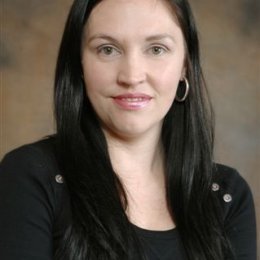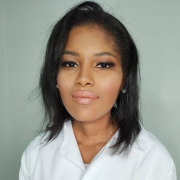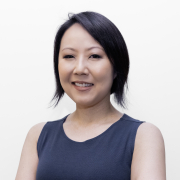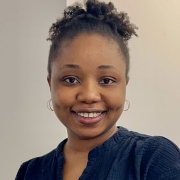How did you become interested in research relating to Hypertension?
In my post graduate studies and as part of work at the Centre for Human Metabonomics at the North West University, my focus was on the role of increased oxidative stress in various diseases. When HART developed the need to expand their research group, I saw a great opportunity to focus on hypertension research and apply my knowledge and experience in this field.
Describe your experience as a lecturer on hypertension research.
Since my position in HART is more dedicated to research and laboratory work, I do not get the opportunity to lecture much. However I love to do basic training in the laboratory and it is really great to see how the students develop from being afraid to touch laboratory equipment to when they feel comfortable in the laboratory setting.
How is your experience as a post-graduate supervisor influencing your career and research?
Being a supervisor to post-graduate students is a huge responsibility, as it depends on me to make the students excited about research. I find the relationships between me and my students mutually beneficial as I sometimes also learn from them.
Describe your research & the program/lab that you are in?
The Hypertension in Africa Research Team is a young but dynamic group specialising in Cardiovascular Physiology. It is our mission to conduct dynamic and focused research regarding cardiovascular diseases in various ethnic populations of South Africa in order to have a significant understanding regarding the development of hypertension and cardiovascular disease. My research focus is on the role of oxidative stress in the development of cardiovascular disease. Since funding is such a huge research constrain it took me a while to get going, but after receiving a capacity building grant (Thuthuka) form our National Research Foundation I am starting to get momentum in my own research and I am very excited about the results thus far. Although we are still a young group, I have the privilege to work with highly experienced and talented people, who are great mentors in various aspects of research and in life.
What do you consider to be your substantial scientific contribution so far (provide Pubmed PMID if possible)?
Most of my research focusing on oxidative stress and cardiovascular disease are not published yet. Therefore my most substantial scientific contributions so far are:
Mels CMC, Schutte AE, Erasmus E, Huisman HW, Schutte R, Fourie CMT, Kruger R, van Rooyen JM, Smith W, Malan NT, Malan L. L-carnitine and long-chain acylcarnitines are positively correlated with ambulatory blood pressure in humans: The SABPA study. Lipids 2013;48:63-73. (PMID: 23099889)
Mels CMC, Schutte AE, Schutte R, Huisman HW, Smith W, Fourie CMT, Kruger R, van Rooyen JM, Malan NT, Malan L. The link between vascular deterioration and branched chain amino acids in a population with high glycated haemoglobin: The SABPA study. Amino Acids 2013;45:1405-1413. (PMID: 24178767)
What is your favourite manuscript from a lab other than your own (provide Pubmed PMID if possible)? Describe your experience as a reviewer for different journals.
My favourite manuscript from another lab is:
Salsoso R, Guzmán-Gutiérrez E, Arroyo P, Salomon C, Zambrano S, Ruiz-Armenta MV, Blanca AJ, Pardo F, Leiva A, Mate A, Sobrevia L, Vázquez CM. Reduced L-carnitine transport in aortic endothelial cells from spontaneously hypertensive rats. PLoS One 2014;28:e90339. (PMID: 24587332).
Being a reviewer for different journals is a huge responsibility, as it depends on you to make sure that the research being described is scientific and of an appropriate standard for the journal. I always have great empathy with the writers though, as I know how it feels to get rejected…
Describe your unforgettable (proudest) moment in science, and the most challenging situation that you have had to overcome (lessons learnt) so far?
My proudest moment in science was when the article I listed as my favourite manuscript from another lab was published. In this article the authors indicated that L-carnitine transport in aortic endothelial cells is reduced in spontaneously hypertensive rats. This support one of the mechanisms I proposed as a possibility for the positive correlation we found between L-carnitine and ambulatory blood pressure in one of our own publications.
I would say that the most challenging situation in research for me is when a manuscript is rejected by a journal, but I have learned not to give up and in the end your perseverance will be rewarded.
At which conference did you first present? How was your experience?
The first conference I presented at was in 2009 at the 11th International congress of inborn errors of metabolism (ICIEM) in San Diego, California. I was still a Ph.D student at the time, and I was completely overwhelmed by the excellent talks presented by the best researchers within that field.
What upcoming conferences will you be attending, and what is the furthest distance that you have traveled for a conference?
This year I attended the Joint Meeting of the ESH and ISH in Athens, Greece and I will be attending our local Stroke and Hypertension congress in Durban, South Africa in August.
The furthest distance (16 954 km) I have traveled for a conference was in 2013, when I attended the American Society of Hypertension conference in San Fransisco, California.
How did you learn about ISH/NIN and its activities?
One of my colleagues, Prof. Alta Schutte, is on the ISH New Investigator Committee.
What are your scientific goals? Advise for talented emerging scientists?
My long term scientific goal is to establish myself as researcher in the field of oxidative stress and how it contributes to cardiovascular disease development. My short term goal is to apply at our National Research Foundation to become a rated scientist. Being a young rated scientist implies that your peers (nationally and internationally) believe you can become an established researcher within a few years.
My advice for talented emerging scientist is the words of Albert Einstein: “Learn from yesterday, live for today, hope for tomorrow. The important thing is not to stop questioning”





















